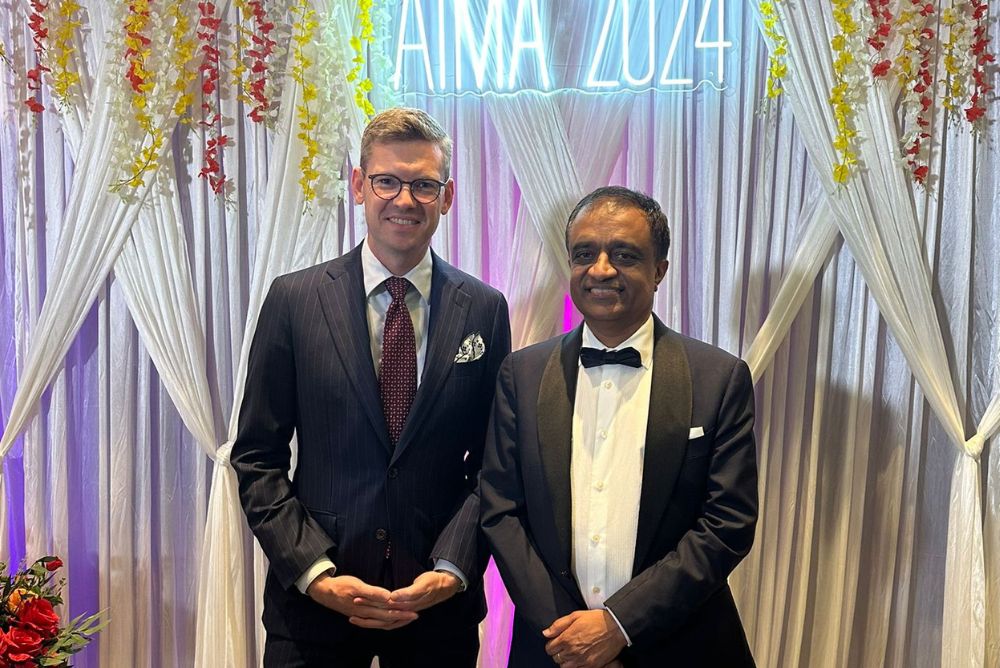

News

President’s Blog: Ins and outs of Indian registrar influx
Friday November 29, 2024
I had the pleasure and honour of attending the Australian Indian Medical Association WA’s annual Gala Dinner a couple of weeks ago. This proud organisation has a very strong membership and many aligned interests with the AMA (WA) in supporting doctors and good medical practice, and President Dr Kiran Puttappa (pictured with me, right) was a great host.
In particular, the AIMA WA plays an important role as a network for supporting newly arrived Indian-trained doctors who, as we all know, play an essential role in WA’s health system (and indeed, many other health systems around the world).
During the function, the Premier announced that 150 Indian registrars will arrive in Perth, ready to work across the State, in January 2025. This has been framed as an outcome of the Health Minister’s excursion to India earlier in the year. Whilst we don’t know how many of these doctors might have come to WA irrespective of the Minister’s initiative, a more coordinated approach to building our medical workforce is welcome. Nonetheless, I’ve advised the Minister of three major issues.
Firstly, the news of more registrars arriving – presumably working in medical, surgical and other roles, though this is to be confirmed – will be welcomed by our current registrar workforce, many of whom are burning out. Hopefully, we will see more reasonable workloads and better access to annual and professional development leave. Nonetheless, we also have a large number of medical students, interns and residents who are either actively seeking specialty training positions, or are looking to the future of having to do so with significant anxiety. Having doctors come into the system who are more advanced in postgraduate years and could potentially be competing for specialty training could compound this anxiety. This should not be mistaken for xenophobia; it simply points to the urgent need for expansion of specialty training positions across a wide range of specialties so that our profession can continue to serve the needs of our population, irrespective of the background of our members.
Secondly and notwithstanding the above, xenophobia and racism in our community and in our health system are real. Even without these factors, settling into a new country and culture is difficult for any individual, so these 150 registrars need to be welcomed and supported. I know that both the AMA (WA) and the AIMA (WA) will play important roles in this.
Thirdly, it is still troubling that our Governments at both State and Federal seem pessimistic about our ability to become self-sufficient with medical training at the undergraduate and postgraduate levels. (Fellow-level subspecialty training overseas will always remain important, and should be better supported and coordinated by the State health system.) Make no mistake, the patients and communities of WA benefit from the excellent service of many overseas-trained doctors, including those from India and elsewhere. But we should aspire to self-sufficiency. An over-reliance on an ongoing inflow of overseas trained doctors deprives the countries of origin of those doctors, and exposes us to the ever-present risk of being caught short.

Performance of Dreamsellers at the Gala Dinner.

